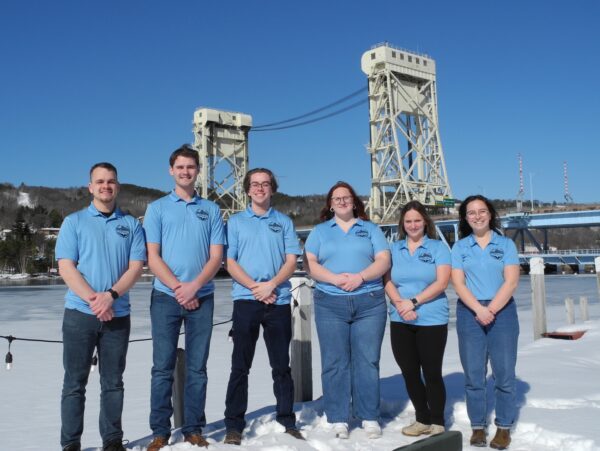Round 1
Samantha Stein – Climate change stands as one of the biggest threats to the Earth. There is scientific proof that climate change is occurring. Ocean levels are rising partly from ice caps melting, ocean temperatures are rising and we are facing more extreme weather. Regulations are necessary to stop any further damage to the Earth. Laws such as the Clean Air Act help limit the amount of hazardous pollutants released into the air. Without these regulations, not only would our environment fall apart but many humans would face severe health issues. Humans would face severe respiratory issues including asthma, wheezing and permanent lung damage. We need these regulations for ourselves and our futures. How could we live without a planet? We need to take care of our home so that we can have a healthy life and future for ourselves and children.
Sam LaMarche – Climate change does not stand as an existential threat to Earth. The climate has changed dramatically over the course of billions of years. For example, during the Carboniferous period of geologic history, carbon dioxide content in the atmosphere was double that of today, and terrestrial life was thriving. While it’s true that the northern ice cap is melting, the Antarctic ice cap is actually growing. As for extreme weather patterns, they have been growing in some areas and diminishing in others. The Atlantic basin has seen record low numbers of hurricanes in recent years. While some environmental regulations are necessary to prevent environmental damage to ecosystems and surrounding property, it should be dealt with at a local level with the goal of ensuring public health. In short, a regulation on the dumping of hazardous wastes, such as mercury, is fine. However, regulations that attempt to change overall climate of the Earth are futile, and do more harm than good.
Round 2
LaMarche – The Earth, and the ecosystems it contains, have survived through billions of years of dramatic climate fluctuations. The idea that humanity, a tiny part of life on Earth, could influence the climate in a way that would pose an existential threat to life is preposterous. If anything, a warmer overall climate could alleviate human poverty by increasing agricultural yields. Of all the industrial gases being produced today, carbon dioxide should be the least worrisome. It is a compound that is essential to life. How could it be a pollutant when plants need it to survive? Carbon dioxide is also one of the least potent greenhouse gases. Water vapor is the strongest, and we surely cannot limit that. The only effective environmental regulations are ones that regulate the disposal of toxic wastes at the local level, with the goal of protecting public health. Others do more harm than good by stifling economic output and addressing a threat which does not exist.
Stein – While it’s true that the Earth goes through cyclical climate changes, there’s evidence that humans have helped speed up the process. Because of our use of the land, we have killed off numerous species of both plants and animals. More than 80 percent of the world’s forests have been destroyed from our actions. Thousands of animals go extinct every year due to our destruction of their habitat or hunting and fishing. If we have regulations in place that protect the land, then we wouldn’t face such issues. Trees are necessary for the Earth to take care of itself. I agree that carbon dioxide is an essential compound to life, but if we kill the life that uses it, then it’s in our air in disproportionate amounts. It is hazardous to humans, but necessary for plants. If we don’t regulate some of these actions that are leading to destruction of natural resources, we won’t have anything to use the carbon dioxide and it will end up poisoning us.
Round 3
Stein – The average modern human tends to assume the world revolves around humans as the superior creature. This is not true. We need the Earth and plants and animals to survive. We can only get so far with manufacturing and technology. Native Americans follow the belief that they do not own the land, but rather are able to work with it to survive. If we follow such a thought process, we wouldn’t have such problems. In order to get to a point where we are living with the land, we need to regulate pollutants and overkilling of both land and animals. If we think of the world as our equal rather than property, then we would easily recognize that we need to regulate our overuse of harmful materials and actions. That’s not to say we shouldn’t farm or hunt. We need to in order to survive. We need to not overdo it, and regulations make it easier to maintain a realistic use of natural resources.
LaMarche – Well over 99 percent of all species that have ever existed are extinct. Humans have contributed to a small fraction of that number. North American forests have been growing gradually since the 1920’s. Carbon dioxide is not hazardous to humans unless it is at such a high concentration as to suppress the absorption of oxygen. Humans are the superior creatures of the Earth in terms of intellect and reason. We have the responsibility to care for the environment around us. However, the most consistent way to help the environment without causing economic inefficiency is to have strong private property rights. Landowners, especially ones who use such land for economic production, often have an incentive to protect natural resources to maintain a good public reputation and preserve the resources used to produce their products. Many industries that rely heavily on land resources, such as paper and mining, practice stricter environmental standards than the EPA requires.





One Response
Good debate, certainly required at the national level. There are non-regulatory methods to reduce fossil fuel consumption. The government can stop subsidizing oil and stop trade with Gulf countries which will not only decrease fossil fuel consumption, but also help solve global terrorism. I guess all political parties will agree.